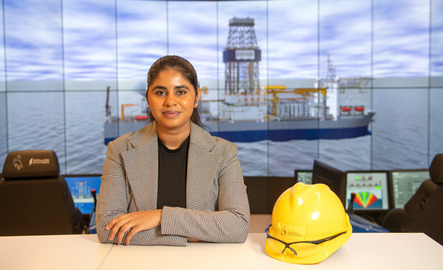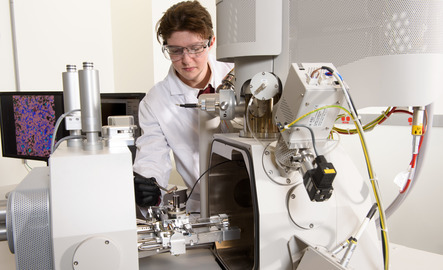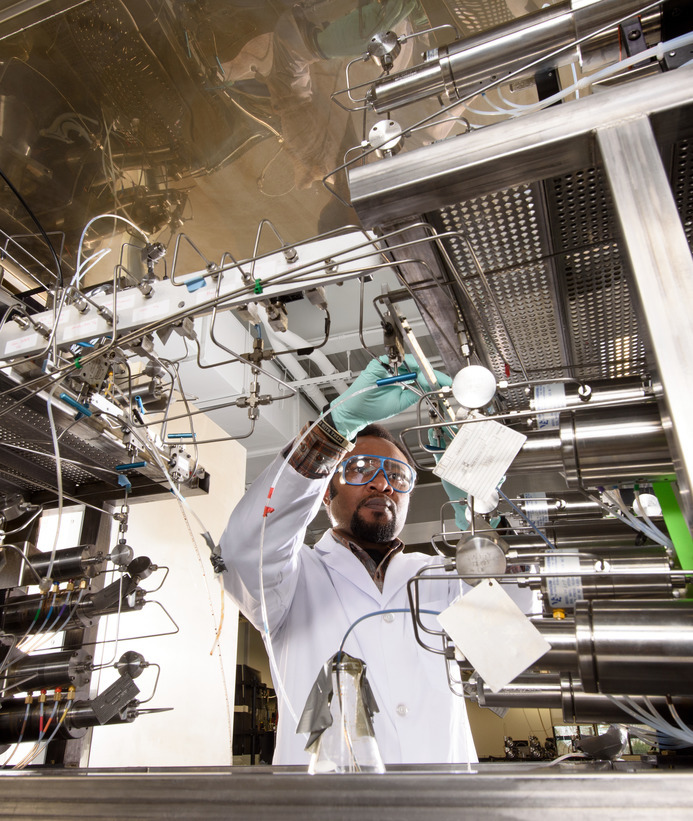About Petroleum Engineering at UW
Equipped with unrivaled research facilities and situated in Wyoming where energy-related
jobs abound, UW's petroleum engineering master's is a research-focused program that
offers one-on-one faculty access, a strong petroleum engineering foundation, interdisciplinary
opportunities and research experience.
Our goal: To prepare the next generation of forward-thinking practitioners and scholars.

UW's petroleum engineering research groups include, among others:
- Goual Research Group
- Saraji Research Group, which looks to develop engineering waterflooding solutions and enhanced oil recovery techniques
- Center of Innovation for Flow Through Porous Media

What Can You Do With a Petroleum Engineering Master's Degree?
With a petroleum engineering master’s degree from the University of Wyoming, you can pursue advanced roles in drilling, reservoir, and production engineering, lead research or innovation projects, or move into leadership and consulting positions in the energy industry—both in the U.S. and worldwide.
- Reservoir Engineer
- Drilling Engineer
- Production Engineer
- Completion Engineer
- Petroleum Economist
- Petrophysicist
- Geomechanics Specialist
- Energy Consultant
- Well Integrity Engineer
- Hydraulic Fracturing Engineer
- Enhanced Oil Recovery Specialist
- Carbon Capture & Storage Engineer
- Reservoir Simulation Analyst
- University Researcher
- Field Development Planner
- Technical Sales Engineer
UW petroleum engineering M.S. graduates have gone on to work in the following roles:
- VP of Engineering, Trey Resources
- Lead Data Engineer, Transamerica
- Senior Reservoir Engineer, Enhanced Oil Recovery Institute
- Unconventional Lead Reservoir Engineer, MCBU Asset Development, Chevron
- Meta Trader, lntrametco
- Head of Global Wells, BP
UW has some of the country's most cutting-edge 3-D printing makerspaces, revolutionizing custom manufacturing for faculty and students. These state-of-the-art facilities enable rapid prototyping and production of specialized equipment tailored to unique research and project needs. By leveraging advanced 3-D printing technology, students and faculty enhance their learning and expand the scope of their research, driving progress and fostering a culture of innovation at UW.
A master’s degree in petroleum engineering can give you a strong edge in the job market by opening doors to advanced, higher-paying roles. It helps you build deeper technical expertise, specialize in areas like reservoir modeling or carbon capture, and stand out for leadership, research or international positions.
“When you left this place, you knew how to run a rig. I had internships with students from bigger schools like Stanford, USC and Texas, and they all asked me how I knew how about the more practical side of drilling engineering. Well, it was obvious they did not have Jack Evers [Professor Emeritus of Petroleum Engineering] teach them drilling.”
- Joe Leimkuhler, M.S. in Engineering '87 | Chief Operating Officer at Beacon Offshore Energy


